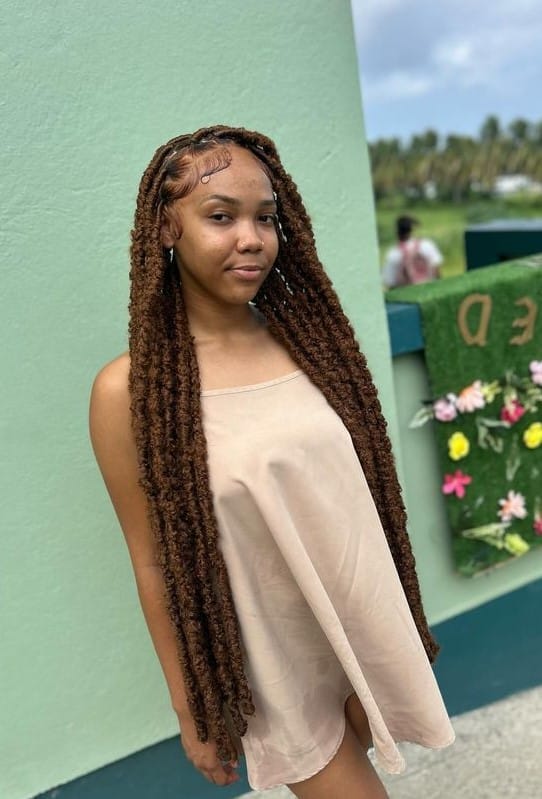Without a doubt, discussions on equality and inclusion have become more pervasive. The politics of natural hair is a critical component of this conversation. Black people have been navigating complicated dynamics related to their natural hair in professional contexts for decades. According to the CROWN Act, 41% of women, or 2/3 of black women, have been forced to change their hairstyles from kinky or curly to straight hair for a job interview (CROWN Coalition, 2024). Furthermore, approximately 54% of black women feel that they should wear straight hair to experience a successful job interview. Over 20% of women have been discriminated against in the workplace because of their hair. 25% believe the job interview was unsuccessful because of their hair (CROWN Coalition, 2024). Besides, 2.5% of black women’s hair is more likely to be viewed as unprofessional. Although significant progress has been made to address this issue, such as the enactment of the CROWN Act, hair discrimination remains a significant workplace problem.
Significance of Natural Hair to Black People
Hair is deeply culturally and historically significant to the Black culture, representing tenacity, pride, and heritage. However, prejudice and discriminatory actions have frequently tarnished the image of Black hair in professional contexts. Social conventions have historically been shaped by Eurocentric beauty standards, which have resulted in the stigmatization of natural hair, including afros, braids, and twists. Implicit biases during hiring and promotion processes and workplace policies that forbid specific hairstyles are examples of discriminatory actions brought about by this bias. As a result, a lot of Black people have been pressured to change their natural hair to comply with Eurocentric standards, even if doing so puts their cultural identity and self-worth in danger.
In a study conducted by Keen (2018) on how significant hair is for black women, one of the significant findings was that women tend to hold their hair as part of their identity. In a comparison, the study found that black women spend more time creating hairstyles and more money buying hair products than their White counterparts (Keen, 2018). It plays a significant role in the black community. This is a symbol of culture, identity, and self-expression. According to individuals such as Johnson and Buckhorn, hair cannot be separated from their sense of identity for many black women. Hairstyles date back to the pre-slavery age and indicate one’s social and societal status (Lashley, 2020). Hair textures and hairstyles are significant in conveying information about individuals’ social status and fashion, among other messages. Therefore, African identity has been tied to hair for a long time. To be discriminated against on your own identity is quite disheartening.

Hair plays a critical role in promoting social change. Hairstyles such as goddess braids, jumbo knotless braids, soft locs, tribal braids, braids with weave, and faux locs symbolize individual freedom (Lashley, 2020). However, some social stigma surrounds textured hair and Black hairstyles, which needs to be demystified. One of the studies indicated that other races tend to show explicit bias toward black girls’ textured hair (Lashley, 2020). They tend to be rated less professional and less beautiful than straight hair. However, on the other hand, black women tend to have a positive attitude towards their natural hair. This raises the issue of politics of natural hair; it is not natural hair that is the issue, but rather society’s perceptions of natural hair.
CROWN Act: A Revolutionary Legislation in the Politics of Natural Hair
People who like to wear their hair naturally have legal protection under the CROWN Act, which forbids discrimination against natural hairstyles linked to race or ethnicity. CROWN Act stands for Creating a Respectful and Open World for Natural Hair (CROWN) Act. The CROWN Act, developed in 2019, addressed the issue of natural hair discrimination in the workplace and schools by ensuring that black women are protected against discrimination based on hairstyles, including locs, braids, and natural hairstyles (CROWN Coalition, 2024). The act addresses the politics of natural hair and how society needs to promote inclusivity.
This historic law is a big step in the right direction toward encouraging diversity and eliminating racial discrimination in the workplace. The CROWN Act encourages people to accept their natural appearance without fear of retaliation by recognizing the traditional significance of Black hair and shielding them from discrimination based on their hairstyles (CROWN Coalition, 2024). The Act is one of the major legislations that has made significant steps toward promoting equality and reducing discrimination against natural hairstyles in the workplace. Various US states, including California, New York, and Virginia, enacted the CROWN Act.
Conclusion
The issue of politics of natural hair is not black-and-white. Recent legislative initiatives, including the CROWN Act, have sought to encourage inclusivity and redress these discrepancies. Although hair discrimination remains a significant issue, reformative legislation such as the CROWN Act will significantly promote equality and protect marginalized groups against hair discrimination in the workplace. However, the issue is still relevant. Raising awareness is vital in challenging stereotypes and dispelling some myths surrounding natural hair and its presentability. All individuals play a significant role in promoting diversity and celebrating hair of all forms.
References
CROWN Coalition. (2024). Research studies. The Crown Act. Retrieved from https://www.thecrownact.com/research-studies
Keen, Y. S. (2018). Differences in hair significance among black and white women: an exploratory study on black hair. https://digitalcommons.humboldt.edu/cgi/viewcontent.cgi?article=1172&context=etd
Lashley, M. (2020). The importance of hair in the identity of Black people. Nouvelles pratiques sociales, 31(2), 206-227. https://www.erudit.org/fr/revues/nps/2020-v31-n2-nps05980/1076652ar/
